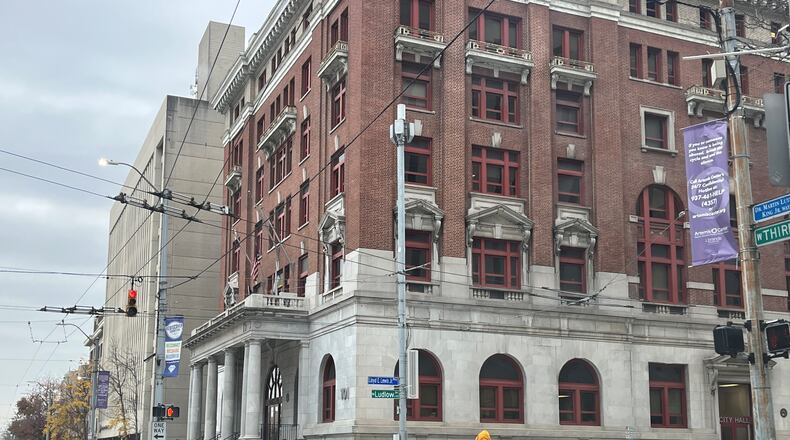Dayton’s income tax collections and general fund revenues should end this year up more than 5% from 2021.
Dayton expects to have a $4 million surplus, which the city proposes to put into its cash reserves.
However, the city manager’s recommended 2023 budget predicts that next year’s tax collections will increase just 0.1% (or $190,000) and total general fund revenues will rise 0.4% ($810,000).
Income taxes account for about three-fourths of Dayton’s general fund revenue.
Dayton for several years has seen general fund revenues outperform original forecasts.
A year ago, Dayton predicted income tax collections and total general fund revenues in 2022 would decline. Instead, they are up over the original estimates by more than $18 million and nearly $20 million, respectively.
Dayton’s original 2021 budget also predicted revenue declines, but collections ended up increasing by more than $10 million from the prior year.
Dayton saw strong revenue growth this year, and the city did not lose nearly as much money as it anticipated due to people who used to work in the city now working remotely at home.
But Dickstein said the city believes revenues will “normalize” next year and inflation will continue to be a factor.
Dayton’s 2023 revenue projections have been vetted by an advisory group of local business leaders who agree the economy is starting to slow, Dickstein said.
The city is preparing for a possible recession next year, city staff said, and the city proposes to use about $4 million of its $138 million in federal COVID rescue funds to help balance the budget.
Dayton has until the end of 2024 to spend this federal aid, and city officials said the city faces a “fiscal cliff” in 2025.
Expenditures have increased “pretty astronomically,” and recent factors include increased overtime and higher costs for goods and services, budget officials said.
“Expense growth has eroded strong revenue performance the past two years,” said Melissa Wilson, Dayton’s deputy director for procurement, management and budget. “The growth rate of expenses is strongly outpacing the availability of revenues, and that creates a structural imbalance.”
The federal aid is a one-time temporary budget solution that buys the city some time to figure out a long-term financial fix, Wilson said.
About the Author



